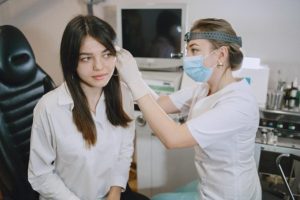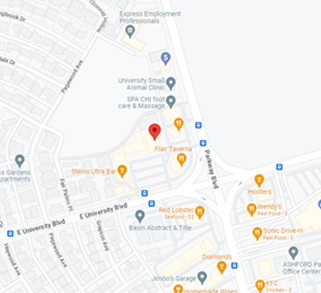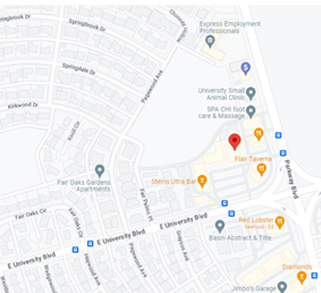Hearing loss is a widespread issue that can profoundly impact a person’s quality of life. Among its various forms, progressive hearing loss poses unique challenges due to its gradual onset, which often goes unnoticed until the condition becomes severe. By understanding the types, causes, and preventive measures, you can take proactive steps to protect your hearing and overall health.
This blog will explore progressive hearing loss in depth and provide insights into managing the condition, with a special focus on the services offered by Roger Clark Hearing.
What Is Progressive Hearing Loss?
Progressive hearing loss refers to a gradual decline in hearing ability over time. Unlike sudden hearing loss, it develops slowly, making it harder to detect in its early stages. This condition can affect one or both ears and range in severity from mild to profound, depending on the underlying cause and duration.
Common Symptoms of Progressive Hearing Loss
Identifying the early signs of progressive hearing loss is crucial for timely intervention. Common symptoms include:
- Difficulty understanding speech, particularly in noisy environments.
- Frequently asking others to repeat themselves.
- Increasing the volume of the TV or radio to uncomfortable levels for others.
- Avoiding social situations due to frustration with hearing difficulties.
- Perceiving sounds as distant or muffled.
Causes of Progressive Hearing Loss
Several factors can contribute to the gradual deterioration of hearing:
- Age-Related Hearing Loss (Presbycusis)
Presbycusis is a natural part of aging that affects the inner ear’s hair cells. Typically seen in individuals over 60, this type of hearing loss often begins with high-frequency sounds, such as birds chirping or phone ringing, becoming harder to hear.
- Noise-Induced Hearing Loss
Prolonged exposure to loud sounds, whether from work environments like construction sites or recreational activities such as concerts or headphone use, can damage the delicate structures of the inner ear over time.
- Genetic Factors
Certain hereditary conditions make some individuals more prone to progressive hearing loss. If a family member has experienced hearing loss, the likelihood of inheriting it increases.
- Ototoxic Medications
Some medications, such as certain antibiotics or chemotherapy drugs, can damage the inner ear, leading to gradual hearing loss.
- Medical Conditions
Chronic conditions like diabetes, hypertension, and autoimmune disorders can impact blood flow to the inner ear, causing progressive damage. Additionally, inner ear diseases like Meniere’s disease can contribute to hearing loss.
- Ear Infections and Blockages
Recurrent ear infections or excessive earwax buildup can interfere with hearing. While many cases are treatable, untreated issues can result in long-term damage.
Types of Progressive Hearing Loss
- Sensorineural Hearing Loss
This is the most common form, resulting from damage to the inner ear or auditory nerve. Causes include aging, noise exposure, and genetics. Unfortunately, this type is often irreversible.
- Conductive Hearing Loss
This occurs when sound cannot travel efficiently through the outer or middle ear, often due to blockages like earwax, infections, or structural abnormalities. While some cases can be treated, others may result in progressive loss.
- Mixed Hearing Loss
This type combines sensorineural and conductive hearing loss, often complicating diagnosis and treatment. Causes can range from chronic ear conditions to age-related factors.
How to Protect Against Progressive Hearing Loss
- Limit Exposure to Loud Noises
- Use earplugs or noise-canceling earmuffs in loud environments.
- Follow the 60/60 rule: listen at 60% volume for no more than 60 minutes at a time.
- Minimize prolonged exposure to noisy recreational activities like concerts or fireworks.
- Maintain a Healthy Lifestyle
- Support cardiovascular health with a balanced diet and regular exercise to ensure adequate blood flow to the inner ear.
- Manage conditions like diabetes and high blood pressure with proper medical care.
- Avoid smoking, as it reduces blood flow and increases the risk of hearing loss.
- Use Hearing Protection
For individuals in noisy work environments, high-quality hearing protection is essential. Custom-fit earplugs or over-ear protection can significantly reduce exposure.
- Schedule Regular Hearing Checkups
Routine hearing tests are vital, especially for those at higher risk due to age, occupation, or health conditions. Early detection enables timely intervention and better outcomes.
- Be Mindful of Medications
Discuss the potential ototoxic effects of medications with your healthcare provider. If alternatives are available, they may help protect your hearing.
- Prevent Ear Infections
- Practice gentle ear hygiene and avoid inserting foreign objects into the ear canal.
- Treat ear infections promptly to prevent complications.
Managing Progressive Hearing Loss
- Hearing Aids
Modern hearing aids are highly advanced, offering customizable features to suit individual needs. They can significantly improve communication and overall hearing ability.
- Cochlear Implants
For individuals with severe sensorineural hearing loss, cochlear implants may be an option. These devices bypass damaged cells and directly stimulate the auditory nerve.
- Assistive Listening Devices
Tools like amplified telephones, TV listening devices, and personal FM systems can enhance everyday communication.
- Aural Rehabilitation
Aural rehabilitation programs help individuals with hearing loss develop communication strategies and listening skills to improve their quality of life.
Also Read: Types and Causes of Hearing Loss and Deafness
Take Charge of Your Hearing Health with Roger Clark Hearing
Progressive hearing loss can have a profound impact on your life, but early detection and proactive management can help preserve your hearing for years to come. At Roger Clark Hearing, we are dedicated to providing personalized care, hearing aids cleaning and cutting-edge solutions to meet your unique needs.
Also Read: Why to Consult a Hearing Aids Specialist Rather Than a General Practitioner
Why Choose Roger Clark Hearing?
- Comprehensive Care: From preventive advice to advanced hearing aids, we offer a full range of services.
- Tailored Solutions: Our team works closely with you to find the best device for your lifestyle and hearing needs.
- Ongoing Support: We’re here to help with maintenance, adjustments, and any questions you may have.
Don’t let hearing loss diminish your quality of life. Contact us today to schedule your consultation and take the first step toward better hearing.








